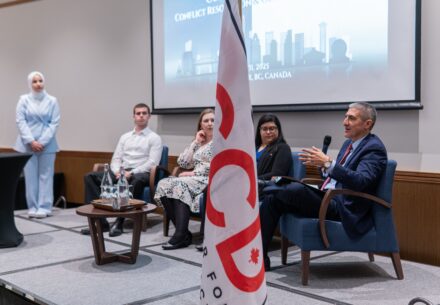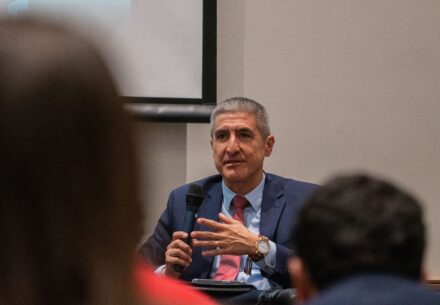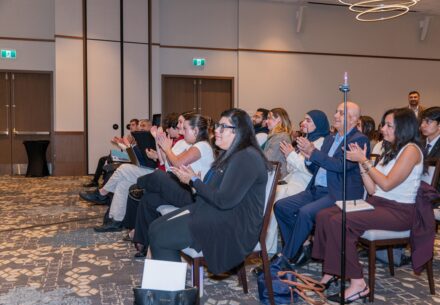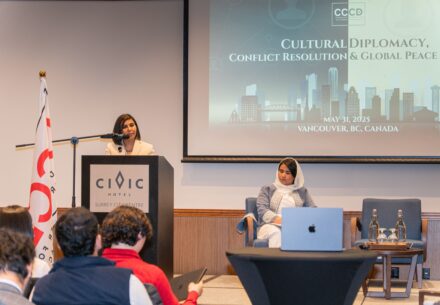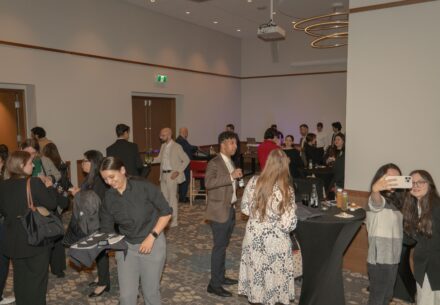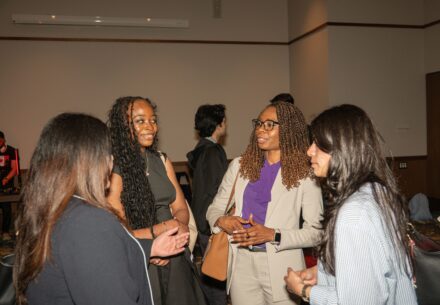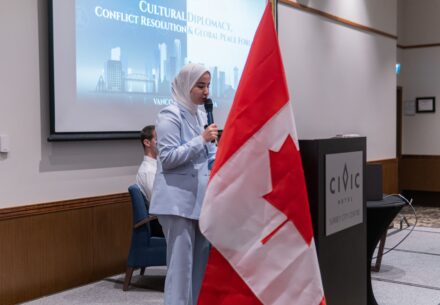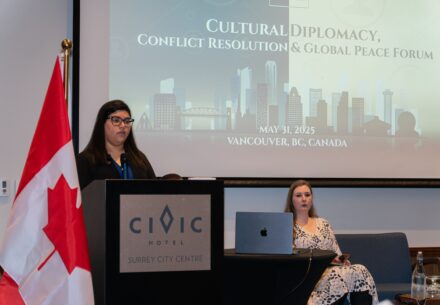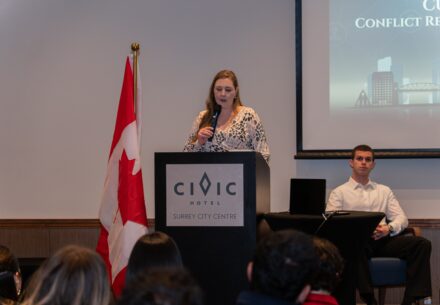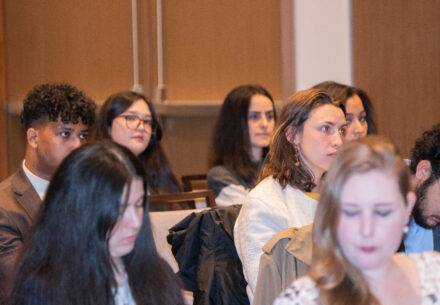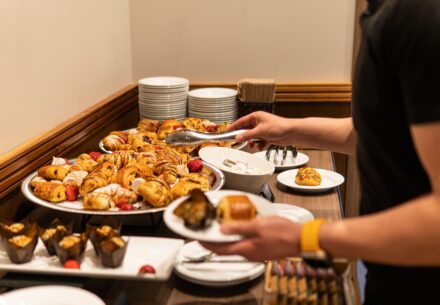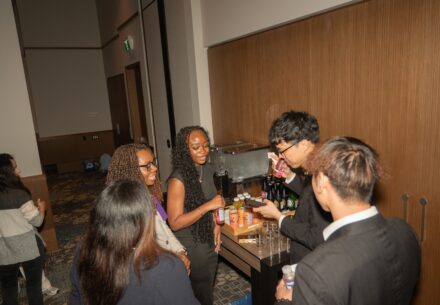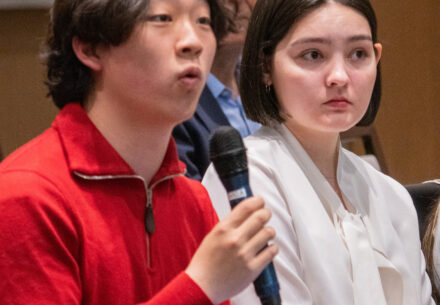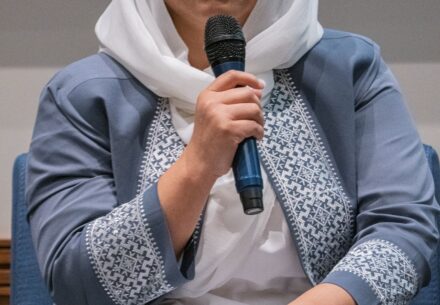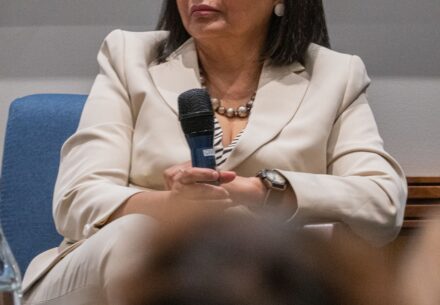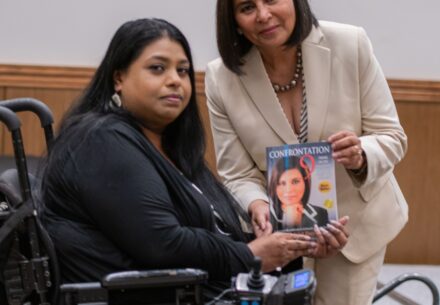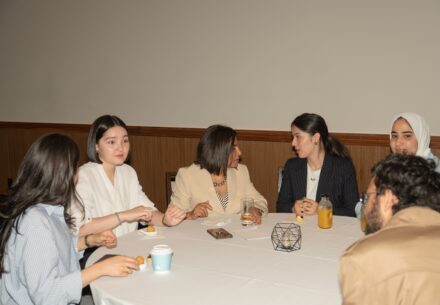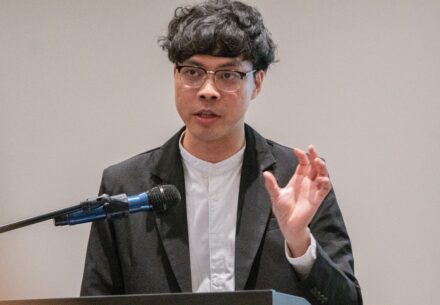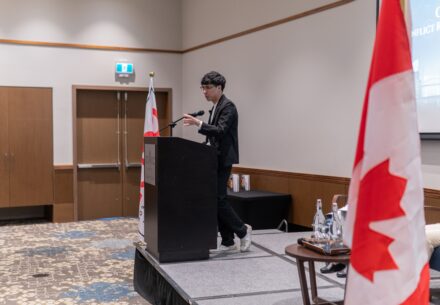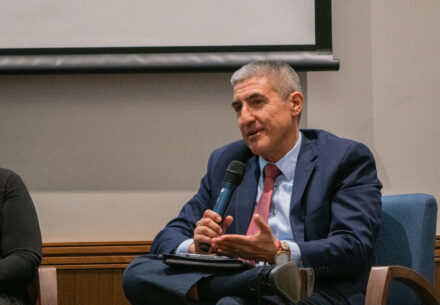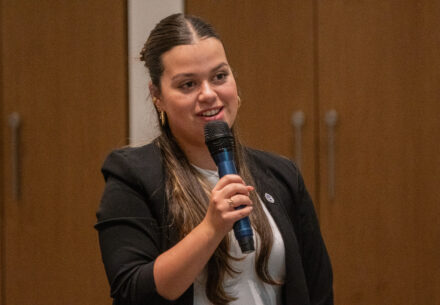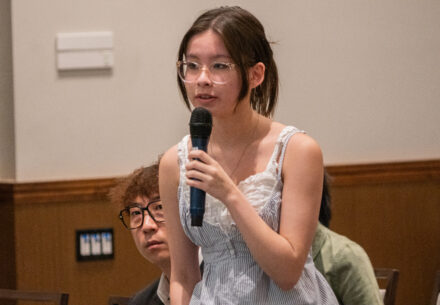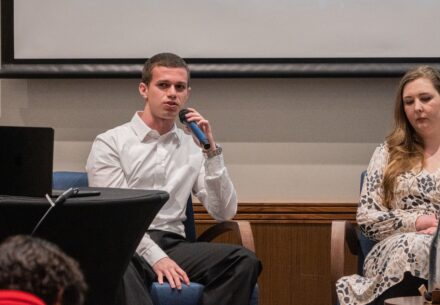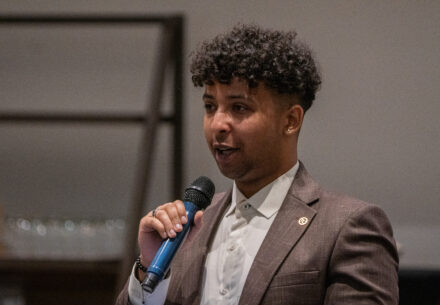
Cultural Diplomacy, Conflict Resolution & Global Peace Forum
Canada as a Global Platform for Peace and Cultural Dialogue: Vancouver Forum Sends a Message to the World
On May 31, 2025, the city of Vancouver, British Columbia, became a global hub for high-level dialogue on peacebuilding and cultural diplomacy. The Cultural Diplomacy, Conflict Resolution & Global Peace Forum, organized by the Canadian Center for Cultural Diplomacy (CCCD) and proudly sponsored by Diplomatic Protocol and Event Management INC, reaffirmed Canada’s leadership in advancing international cooperation, inclusive diplomacy, and cultural understanding.
The forum’s main sessions and in-person discussions took place at the Civic Hotel, Autograph Collection by Marriott, located in Metro Vancouver’s central conference district a venue chosen for its accessibility and alignment with the forum’s international vision.Bringing together diplomats, scholars, policy leaders, and peace practitioners from across the globe, the forum served as a powerful statement of Canada’s identity as a convener of intercultural dialogue and a champion of soft power diplomacy. The hybrid format—combining live events with virtual participation—extended the forum’s reach and underscored the accessible and borderless spirit of cultural diplomacy.
Panel I: Political Diplomacy and Intercultural Relations
Moderated by CCCD Board Member Aisha Sidiqi, the forum’s first panel focused on the critical role of political diplomacy rooted in cultural understanding.
A keynote address was delivered by Ambassador Alejandro Neyra, one of Latin America’s most respected cultural and diplomatic figures. Neyra has served as Peru’s Minister of Culture, the country’s Permanent Representative to UNESCO, its Diplomatic Representative to the United Nations in Geneva, and Director of the National Library of Peru. Currently a senior diplomat at the Embassy of Peru in the United States, he spoke passionately about the rise of global “culture wars” and the urgent need for cultural diplomacy as a stabilizing and unifying force in a fractured world. He urged governments to embrace relational, people-centered diplomacy grounded in heritage and shared values.
Islam Khalilli, CCCD Board Member and Public Administration researcher at York University, offered a scholarly reflection on the ways in which regional conflicts are shaped by identity and historical memory. He argued that cultural narratives—when properly engaged—can serve as instruments of reconciliation and long-term peacebuilding.
Lauren Turner, Senior Sustainability Specialist at Ivey Business School’s Centre for Building Sustainable Value, examined the impact of geopolitical instability on sustainable development. Her analysis highlighted the strategic importance of cultural diplomacy in promoting long-term global resilience and security.
Antalya Popatia, Research Analyst at the NATO Association of Canada, provided a geopolitical perspective on peace and conflict, exploring how culture complements defense and foreign policy in achieving sustainable peace and international cooperation.
Panel II: Cultural Diplomacy and Inclusive Societies
Moderated by CCCD Board Member Ritika Somendra Saraswat, the second panel explored the transformative potential of cultural diplomacy in fostering inclusive, just, and resilient societies—particularly in post-conflict settings.
A keynote speech was delivered by Dr. Dilshad Dayani, a professor of Strategic Communication at Columbia University, award-winning journalist, human rights advocate, and United Nations consultant. Drawing from her decades of global experience, Dr. Dayani underscored the critical role of women in peacebuilding and the value of cultural heritage as a tool for empowerment, community healing, and conflict prevention. She emphasized that diplomacy must not only include marginalized voices—it must be redefined through them. Her call for bottom-up diplomacy rooted in cultural knowledge resonated deeply with the forum’s international audience.
Tim Huynh, a Master’s candidate in Immigration and Citizenship Law at Queen’s University and a program developer at MOSAIC and YMCA BC, delivered a powerful personal narrative about resilience and belonging. As someone from a conflict-affected background, his journey illustrated the potential of inclusive cultural policies in transforming adversity into engaged global citizenship.Shukria Neda, a Master’s student in Public Policy at Simon Fraser University, presented a moving account of how cultural values contribute to rebuilding war-torn communities. Her insights, grounded in both research and lived experience, reflected how tradition, storytelling, and shared identity can help restore peace and collective dignity.
The forum concluded with an elegant Gala Reception, held at the Civic Hotel. The reception was a celebration of shared values, intercultural dialogue, and diplomatic friendship. Guests enjoyed live music, informal networking, and meaningful conversations that transcended cultural and national boundaries. The gala was more than a closing event—it was a living demonstration of the power of culture to connect people and foster understanding.
The Cultural Diplomacy, Conflict Resolution & Global Peace Forum was not merely a one-day gathering. It was a declaration of Canada’s global responsibility and commitment to building peace through culture, dialogue, and cooperation. In a time of increasing polarization and instability, Canada continues to lead by example—investing in platforms that foster connection, empathy, and shared purpose.
Spearheaded by the Canadian Center for Cultural Diplomacy, this initiative exemplified how cultural diplomacy is not peripheral to foreign policy—it is central to it. As global challenges grow more complex, Canada’s leadership in convening inclusive, strategic, and forward-looking dialogue places it firmly at the heart of international peace efforts.


